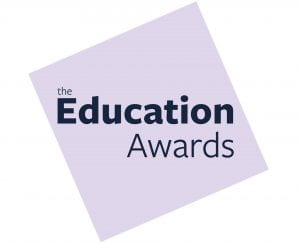In case you missed it in our daily comms, please find below some information on race equality at UCL, with a message from Jennifer Brown as Chair of the Library’s Equality, Diversity and Inclusion committee, as well as some highlights on work which has been underway in Library Services to decolonise our collections and support UCL’s investigations into the university’s role in the history of eugenics. You can also find some training resources recommended by UCL EDI and Library SMT colleagues, to complement the resources which Andy Pow shared via liblist last Friday.
Race Equality at UCL
In the Provost’s View earlier in the week, the Provost reflected on the appalling killing of George Floyd and acknowledged the devastating and distressing impact this continues to have on our Black staff and students. The Provost also accepted that the statement UCL made last week was not specific enough about the impact on Black students and staff and apologised for the stress and hurt caused to Black students and staff.
As mentioned by the Provost, we need to go beyond expressions of solidarity and look at what further practical steps we can take to address racism close to home. UCL has taken practical action on structural racism at UCL under the current Provost. UCL Library Services is part of this action, with one of our six Key Performance Areas in the Library Strategy dedicated to Staffing, Equality, Diversity and Inclusion and we will share more about the Library’s work in this area. We fully agree with the Provost that more must be done and that we must accept responsibility for more rapid progress.
UCL is seeking to consult with Black staff and students via a town hall style meeting in the near future, in order to listen more, learn, and decide what additional action we should be taking as a university. If you would like to register your interest in receiving details of this event, you can do so using this online form.
A message from Jennifer Brown, Chair of the Library Services Equality, Diversity and Inclusion committee
I have reflected deeply upon the brutal murder of George Floyd and being told that BME people are more prone to dying from the Coronavirus coupled with the fact that there was insufficient investigation as to why this is the case.
To say that the past few weeks have been distressing is an understatement. For many it has been an eye opener but for others it is a reality that they have had to live most if not all of their lives. I have been engaging in lots of discussions externally around what is occurring and what needs to happen.
As a woman of African Caribbean heritage I have faced the experiences, the frustration, the hurt plus more that many are now feeling more liberated to speak about.
As the chair of the Library Service Equality Diversity and Inclusion committee I am committed to tackling any practices which cause BME people to face inequality. Not just within Library Services but throughout the UCL community which I have already been doing. This might mean that at times some uncomfortable and frank discussions might need to be had but this is a way forward to tackling some of the inequalities being faced.
I would like to cultivate a culture of solution so if you have any suggestions that you would like to be considered confidentially please feel free to email me jennifer.brown@ucl.ac.uk or the Library DEOLOs (b.whiten@ucl.ac.uk and g.manzotti@ucl.ac.uk). Anonymised suggestions will be discussed at forthcoming EDI meetings and shared with the Library SMT for further consideration and action as appropriate.
The change required is not about tokenism, we all need to work together to cultivate more positive experiences and meaningful outcomes.
#Blacklivesmatter
Decolonising collections
Back in November a meeting of staff interested and engaged in themes around “decolonising” collections considered the scope for activities in Library Services. Colleagues shared examples of work already being undertaken at this forum. To take this forward a Liberating the Collections Steering Group will oversee strands of activity across Library Services, aligned to UCL Library Services Strategy, UCL’s Liberating the Curriculum initiative, UCL’s wider EDI activity and with reference to best practice in the library sector. A more detailed blog post will be published next week.
Inquiry into the history of eugenics
In March, shortly before lockdown, the Peer Review dedicated an edition to the outcomes of the Inquiry into the history of eugenics at UCL. The independent Chair of the Inquiry, Professor Iyiola Solanke, outlined why she agreed to lead the Inquiry for UCL and how it relates to social justice. Maria Kiladi shared an article on what our archives tell us about the history of eugenics at UCL.
Many colleagues from Library Services directly supported the Inquiry, particularly Katy Makin and Colin Penman from Special Collections. The Inquiry itself forms part of the wider work which UCL is doing to further race equality.
The Inquiry report and recommendations, as well as videos of the Town Hall meetings, are available on the Inquiry webpages.
EDI training available
UCL Equality, Diversity and Inclusion (EDI) are working in partnership with colleagues from the Race Equality Steering Group on a number of institutional actions. In the meantime, Fiona McClement (Head of EDI) would encourage people who are looking to take action on a personal level to sign up to one or more of these webinars. Pearn Kandola tend to deliver really good, thoughtful training and their new series of racism at work will be in the context of current times.
The EDI team does not believe there is a limit on numbers who can sign up but if you do have any problems, please let me know and EDI have offered to look to organise some sessions specifically for UCL.
 Close
Close






 The RIBA talk is an eye-opener and recommended to anyone who is interested in organisational cultures and change (register with
The RIBA talk is an eye-opener and recommended to anyone who is interested in organisational cultures and change (register with 



